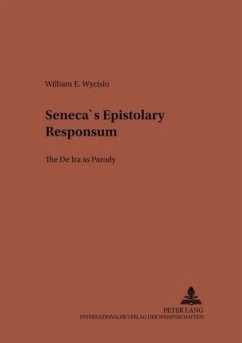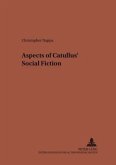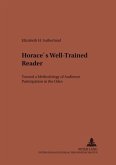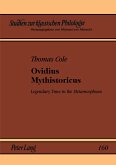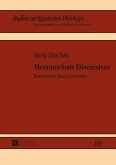Although Seneca's De Ira has long been considered a standard Stoic approach to anger in dialogue form, its structure more closely approximates that of an epistle. The prevalence of legal terminology as well as numerous and recurrent legal contexts suggest that Seneca used the Epistolary Responsum of the jurisconsults as his model instead of the philosophical dialogue. Seneca's criticism of the delict Iniuria in a legal genre disguised as a Stoic moral essay parodies the Responsum and, as a consequence, effectively reveals law as a convenient pretext and source of a social ill it purports to remedy.
Bitte wählen Sie Ihr Anliegen aus.
Rechnungen
Retourenschein anfordern
Bestellstatus
Storno

